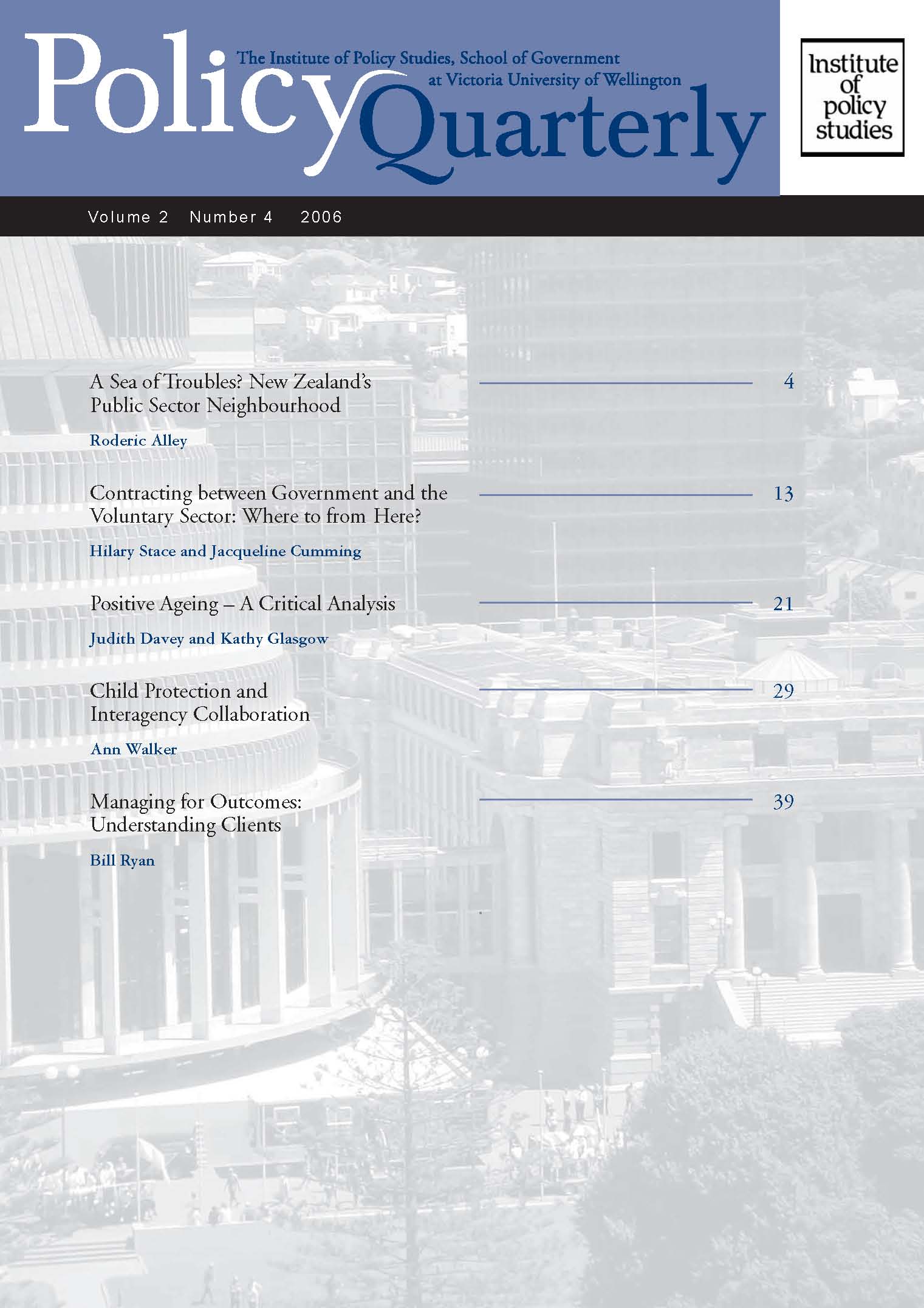Positive ageing: a critical analysis
DOI:
https://doi.org/10.26686/pq.v2i4.4209Keywords:
OECD, Positive Ageing Strategy (PAS), Social and Family Responsibility, Social Development Approach (SDA)Abstract
Throughout the world governments are beginning to respond to the challenges of population ageing, often in rhetoric implying that ageing will bring about a ‘crisis’. These responses generally centre on the fiscal implications of retirement income support and health care services (OECD, 1998). The OECD notes the need for a broad and holistic approach to ageing, reflecting the interdependence of policies, but this can be a daunting prospect. The New Zealand government has taken up this challenge through its Positive Ageing Strategy (PAS) and is not alone in this; there have been similar initiatives in other countries. In examining these policy documents it is clear that there are common underlying values. This paper critically examines PAS, and makes comparisons between it and strategies on ageing from Australia and the United Kingdom. The paper argues that the three strategies reflect a positive discourse on ageing that has implications for both current and future generations of older people.
Downloads
Downloads
Published
Issue
Section
License
Permission: In the interest of promoting debate and wider dissemination, the IGPS encourages use of all or part of the articles appearing in PQ, where there is no element of commercial gain. Appropriate acknowledgement of both author and source should be made in all cases. Please direct requests for permission to reprint articles from this publication to Policy-Quarterly@vuw.ac.nz.



